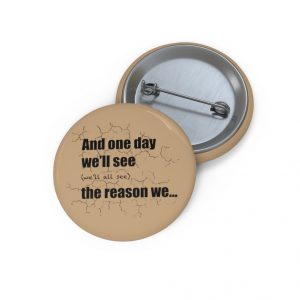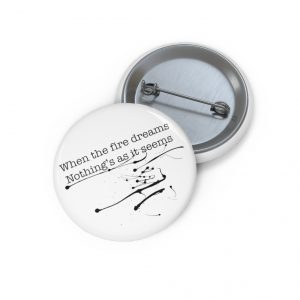Southern Time and the Global South

What is ‘Global South’?
The term ‘Global South‘ originally referred to Latin America, Asia, Africa, and Oceania. It was first coined by the French demographer ‘Alfred Savvy’ in 1952 along with a reference of ‘Tiers Monde’ (third world) that pointed towards remaining countries outside the two hegemonies at the time, the US & Soviet Union.
The concept behind this word has extensions rooting out to its geographical, political, and social implications. In world-historical accounts such as the cold war, one point resulted in the geographical subjugation of third-world countries and its exploitation. The first time when ‘Global South’ was put forth in a contemporary political sense was in 1969 by Carl Oglesby.
Marked by lower quality democracies and its developing period, the ‘Global South’ eventually turned into a bank of talented & skilled cheap labor. Neo-colonialism has been in play throughout history resulting in slowing down the development in third world countries and helping the developed ones to shine!
Currently, the sad reality is such that even the developed countries to varying degrees have an underclass/homeless/Indigenous population and massive amounts of people who live under the poverty line. Colonialism’s legacy has not only had and continues to have detrimental effects on its previous subjects and present-day global workforce, but the rot of such inherited habits and privilege has also created an underclass of disadvantaged and disenfranchised people in the present day so-called ‘First World.’
Southern Time
T (aka ‘Timothy Bartsch’) wrote his first song ‘Southern Time’ in 1997 as he turned 21 a few months after discovering he was HIV positive. He just started his cello studies in Germany when he heard the bad news. His life-long dream to study the cello in Germany was over after only one semester. He came back to his mother in Vancouver, Canada, and started to write songs and sing. His HIV specialist at the time introduced him to the new life-saving medications that were-to-be but could only promise T that if he did take them correctly, ten years, maybe more, to live.
At 20 years of age, T did not care if he died young but cared more that no woman would probably ever want to be with or love him again. Considering the way T contracted HIV from his African-American cello professor who did not inform T of his HIV positive status. Because T’s ‘great cello career’ dream was now over, T started to identify more with the exploited and nameless masses who produce most of the developed world’s consumer goods and have little to no hope for the betterment of their lives—without any opportunity, forgotten, despised.
With a firm resolution of performing to the best of his abilities, using his musical talents and story to make the world a better place, T started writing songs and learning how to sing. ‘Southern Time’ was the first-ever song written by ‘T’ conceptualized around the themes of the ‘Global South’ because of T’s experience and knowledge acquired from his cello professor, and because he was now disempowered and disenfranchised like most of the world.
T realized that if there was to be peace and harmony in our world at his tender young age, the world must live in balance, where the disparity between the rich and the poor is nearly negligible. For this to happen, ‘Time for the (Global) South’ must occur!
Southern Time Band
Southern Time Band’s musical artwork comes with a pure and noble intention behind it, making it stand out in the music industry. It performs a ‘psychedelic jazzy-classical musical-theateresque art-rock’ kind of ’21st Century Social Classical’ music genre and has received a lot of fan love. The Southern Time Band comprises of HIV positive lead singer ‘T’ and vocalist Justin Anantawan. Putting forth both the struggles and triumphs of being HIV positive individuals in this world, STB emphasizes compassion and understanding for all in our global society. Its music brings out a positive motivation to live and hope for people, especially those dealing with stigma, discrimination, and criminalization.
Southern Time can entirely transform the music industry by producing musical artwork, touching the hearts of the people, and making them rethink their actions towards people suffering from such stigmatized diseases or ‘other nesses.’ Part of the proceeds from their albums and merchandise will go to the Southern Time Foundation, which will fund crucial AIDS initiatives going on around the world.
STB’s music can revolutionize the industry, adding a new flavor of Rock Opera with a definitive purpose. Like some of the most excellent musicians of all time rightly said, “Music can change the world.” STB believes the same. The Southern Time Band wants to help end AIDS by decreasing HIV stigma and raising public awareness about the current state of HIV and AIDS throughout the world.
Southern Time Tetralogy/TV Series
T wrote and produced ‘Southern Time,’ the rock opera in its first iteration in Vancouver, Canada, in 2005 as a multimedia stage production. It explored through music, acting, dancing, and four screens with video projections on how T acquired HIV and what living with it had been like for him up until that point.
T’s story with HIV was not over, though. After the show, T tried in vain to produce Southern Time in its cinematic form the next few years. He nearly died from AIDS in 2009 because he did not believe that HIV caused AIDS at the time and was not seeing a physician or taking HIV medications for ten years. He spent six months in the hospital, two months of which were in the palliative ward.
T came out of the hospital a positively changed man, with a recovering immune system but with lower spinal cord damage from an opportunistic infection due to having AIDS. Due to his mother and stepfather’s loving support and available time, T spent the next six years on the mend.
In 2015, T returned to Toronto, now determined to find the Southern Time Band’s other members. Once he found the band members, the idea was to start building their fanbase in the hopes that they would create the demand for the Southern Time Tetralogy or TV series. In 2018, T found the core instrumentalists, in 2019, he found Justin Anantawan, and in 2020 while recording their first album ‘Lost in Love No More,’ T found Shessi Sandu, the third and female vocalist of the band.
Lost in Love No More released July 6th, 2020, coinciding with the start of AIDS 2020 — the first online World AIDS Conference due to COVID-19. The band was planning, with investor support, to embark on its first world tour after its first album release in 2020, but due to COVID, plans have changed. They will now find innovative online measures to reach the global masses with their music and message.
In 2020, with funding for the first film or season of the Southern Time Tetralogy/TV series, preproduction on ‘Southern Time, Deception’ will begin. The objective is that throughout the 2020s, Southern Time Productions will produce and release the four parts of the tetralogy (or multiple online streaming seasons) with a world tour (either in-person or online) and album release of the Southern Time Band occurring after each film/season release. The Southern Time Band, Southern Time Productions, and the Southern Time Foundation want to help meet UNAIDS’ goal of ending AIDS by 2030. In this way, we will be assisting the ‘Global South’ to shine.
Donate
Donate for helping ends AIDS
Our Products
-
 "WHEN THE FIRE DREAMS" Mug
$11.81
"WHEN THE FIRE DREAMS" Mug
$11.81
-
 "DESERT MOON" Button
$5.85
"DESERT MOON" Button
$5.85
-
 "NEVILLE" Button
$5.85
"NEVILLE" Button
$5.85
-
 "WHEN THE FIRE DREAMS" Button
$5.85
"WHEN THE FIRE DREAMS" Button
$5.85
-
 SOUTHERN TIME BAND Unisex Heavy Blend™ Hooded Sweatshirt
$35.96 – $42.61
SOUTHERN TIME BAND Unisex Heavy Blend™ Hooded Sweatshirt
$35.96 – $42.61
-
-
Recent Posts
